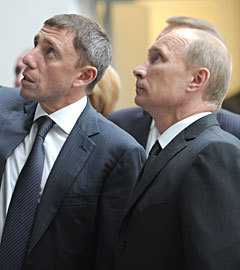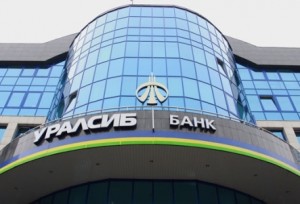
Liquidation, revocation of licenses, and placement in receivership have become almost weekly news for Russian banks. Central Bank of the Russian Federation is supposedly actively fighting credit institutions that violate regulations and engage in illegal financial activities. But is it actually the case? Let us consider a recent example.
Uralsib Bank, one of the thirty largest banks in the country, has become yet another victim of the “banking purge.” Yet its license has not been revoked: in effect, there was a forced change of ownership at Uralsib. On November 4, Central Bank tasked a private investor with the reorganization of one of Russia’s largest banks. This investor was Vladimir Kogan, who in the 1990s carved a career as a banker thanks to his close ties to Vladimir Putin. Central Bank’s decision surprised many: Uralsib has recently been improving, and no one expected that it would be placed in receivership, let alone with large inflows from the Deposit Insurance Agency.
On the one hand, government policy toward unreliable financial institutions is fairly consistent: since the beginning of 2015, Central Bank has revoked licenses from more than seventy banks. Observers have become accustomed to tough comments from Central Bank officials about large holes in banking assets. The executives of some troubled banks have already been indicted with fraud. As of January 1, 2014 Russia had 859 credit institutions; by October 1, 2015 this number had dwindled to 714. Notably, it is primarily smaller regional banks that are having their licenses revoked; larger banks with serious assets are being placed in receivership of their more successful counterparts. This is not surprising: the resources of the federal Deposit Insurance Agency that have been accumulated before the crisis are limited; there will not be enough for everyone; so the task of salvation of the drowning banks is being placed on the drowning banks themselves, and it is naturally the strongest—and closest to the Kremlin—that survive.
On the other hand, almost all the banks that have been “put under the knife” were, at least according to official figures, in a bad shape. Uralsib is a different story. Its main shareholder, Nikolai Tsvetkov, has been, for the past year, honestly following the Central Bank’s instructions on the additional capitalization of his bank. In August alone, he transferred 15.2 billion rubles’ worth of capital and real estate to Uralsib; and in October, the Central Bank and the Deposit Insurance Agency conducted an audit and concluded that the results of the bank’s reorganization were “satisfactory.” The subsequent plan was for selling off non-core assets and attracting an investor. But who could imagine that the investor would appear in just a couple of weeks, and would buy almost the entire bank, 82 percent of its shares, for a symbolic price; and, most importantly, would receive 81 billion rubles from the Deposit Insurance Agency, 14 billion of those for six years, and 67 billion for ten—at a 0.5 percent annual rate.
The lucky investor was Putin’s friend Vladimir Kogan, who has become the owner of one of Russia’s largest banks practically free of charge. And yet Kogan has no team that would be able to solve such serious problems (Uralsib will be provisionally handled by the management of BFA, a small bank whose beneficiary is Kogan’s son;) no experience of managing a large bank; and not enough money for the purchase. In the 1990s, Kogan owned Promstroibank of St. Petersburg, which he sold to VTB in 2004, and headed the St. Petersburg Bank, controlled by the family of Valentina Matviyenko, the current speaker of the Federation Council and former governor of St. Petersburg. In the early 1990s, Kogan befriended Putin, and this provided the key boost for his career. Between 2004 and 2012, Kogan headed Rosstroi (now known as Gosstroi,) the federal agency that controls all of the largest state-financed

construction projects. Like any senior Kremlin official who has retired from a lucrative post, Kogan needed to invest the capital he had accumulated during government service. In 2013, he attempted to buy the now-bankrupted bank Vozrozhdenie and gain control of Uralkalii, which had, thanks to the financial adventurism of its previous “controller,” pro-Kremlin senator and businessman Suleiman Kerimov, turned from a world-class successful public
company into an outsider with a tarnished reputation in less than a year. It can be said that Kogan was lucky in 2013—he was not in the spotlight, and, as a result, was not placed under international financial sanctions imposed on Putin’s closest businessmen friends in 2014.
The transfer of Uralsib Bank to Kogan was undoubtedly a political decision that had been approved at the very top. It was facilitated not as much by the current economic crisis that is destroying the previously stable private businesses, as by Western financial sanctions that have affected Russian banks owned by the state and by Putin’s friends. It was these friends, the sanctioned Rotenbergs and Kovalchuks, who needed a well-built large Russian bank through which they could continue to steamroll their business deals. Such a bank could not be assigned to just anyone—only to a trusted Kogan.





